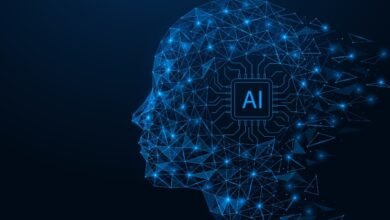Will Machines Ever Truly Think? Richard Feynman Contemplates the Future of Artificial Intelligence (1985)

Though its answer has grown more complicated in recent years, the question of whether computers will ever truly think has been around for quite some time. Richard Feynman was being asked about it 40 years ago, as evidenced by the lecture clip above. As his fans would expect, he approaches the matter of artificial intelligence with his characteristic incisiveness and humor — as well as his tendency to re-frame the conversation in his own terms. If the question is whether machines will ever think like human beings, he says no; if the question is whether machines will ever be more intelligent than human beings, well, that depends on how you define intelligence.
Even today, it remains quite a tall order for any machine to meet our constant demands, as Feynman articulates, for better-than-human mastery of every conceivable task. And even when their skills do beat mankind’s — as in, say, the field of arithmetic, which computers dominate by their very nature — they don’t use their calculating apparatus in the same way as human beings use their brains.
Perhaps, in theory, you could design a computer to add, subtract, multiply, and divide in approximately the same slow, error-prone fashion we tend to do, but why would you want to? Better to concentrate on what humans can do better than machines, such as the kind of pattern recognition required to recognize a single human face in different photographs. Or that was, at any rate, something humans could do better than machines.
The tables have turned, thanks to the machine learning technologies that have lately emerged; we’re surely not far from the ability to pull up a portrait, and along with it every other picture of the same person ever uploaded to the internet. The question of whether computers can discover new ideas and relationships by themselves sends Feynman into a disquisition on the very nature of computers, how they do what they do, and how their high-powered inhuman ways, when applied to reality-based problems, can lead to solutions as bizarre as they are effective. “I think that we are getting close to intelligent machines,” he says, “but they’re showing the necessary weaknesses of intelligence.” Arthur C. Clarke said that any sufficiently advanced technology is indistinguishable from magic, and perhaps any sufficiently smart machine looks a bit stupid.
Related content:
The Life & Work of Richard Feynman Explored in a Three-Part Freakonomics Radio Miniseries
Stephen Fry Explains Why Artificial Intelligence Has a “70% Risk of Killing Us All”
Richard Feynman Creates a Simple Method for Telling Science From Pseudoscience (1966)
Based in Seoul, Colin Marshall writes and broadcasts on cities, language, and culture. His projects include the Substack newsletter Books on Cities and the book The Stateless City: a Walk through 21st-Century Los Angeles. Follow him on the social network formerly known as Twitter at @colinmarshall.




